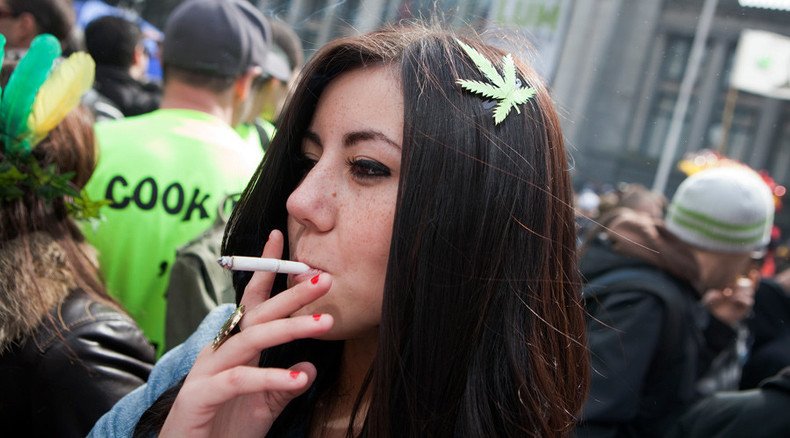Report debunks marijuana harm claims at core of Canadian PM’s drug policy

A Toronto-based research group published report that debunks claims of health and social harm of marijuana that hits the core of the drug policies advocated by Prime Minister Stephen Harper amid the ongoing election campaign.
Harper, the leader of Conservative party, is fighting against calls to legalize marijuana by rival politicians, particularly Liberal leader Justin Trudeau. The PM revealed his party’s three-pronged plan to strengthen its national drug strategy at a campaigning event earlier this week.
“The statistics in places like Colorado are very clear on this, that, when you go down that route [toward legalization], marijuana becomes more readily available to children, more people become addicted to it and the health outcomes become worse,” he told a rally Tuesday in Markham, north of Toronto, as cited by the Globe and Mail.
The assertions are among the 13 claims about marijuana harm that the Toronto-based International Centre for Science in Drug Policy (ICSDP) attacked it its report released on Wednesday. The report said the science behind most of the claims was weak and accused pot opponents of cherry-picking facts to further their position.
'I smell marijuana in your car': Canadian cop smashes car window, drags out driver (VIDEO) http://t.co/DK7xNb5Ylypic.twitter.com/VYQzYl4moS
— RT (@RT_com) March 30, 2015“It’s funny; it’s almost like [Harper] read the report in advance and decided to repeat a lot of the most oft-discredited ideas,” said M. J. Milloy, an infectious-disease epidemiologist with the BC Centre for Excellence in HIV/AIDS and member of the drug-policy center. Speaking to Vice news, he also stressed that the report’s release was not timed with the election campaign.
Of the 13 claims selected for the report, which includes cannabis perception as a gateway drug leading to the use of more potent substances, the claim that its use may cause schizophrenia and that its legalization would create a ‘Big Marijuana’ industry akin to the tobacco industry, it says only two had moderately convincing evidence in science publications to back it.
Indeed the potency of THC, the substance responsible for the psychoactive effect of cannabis, has grown over the decades of its cultivation for recreational use, the report said. There are also studies suggesting that cannabis may impair cognitive functions, although evidence on severity, persistence and reversibility of such effects are inconclusive, it added, labeling the scientific basis of the claims as moderate. The other 11 claims were called "weak" in terms of scientific evidence.
Australia may legalize medical marijuana in August – report
http://t.co/sNK3jbCnQ9pic.twitter.com/dkaRzhsWee
— RT (@RT_com) July 27, 2015“We are at a critical juncture, as more and more jurisdictions are reconsidering their policies on cannabis,” said in a statement Dr. Dan Werb, ICSDP director and co-author of the report.
“Yet, the public discourse around cannabis is filled with frequently repeated claims that are simply not supported by the scientific evidence. Given that policy decisions are influenced by public opinion and media reports, there is a serious danger that misrepresenting the evidence on cannabis will lead to ineffective or harmful policy,” said the researcher.
Shakespeare smoked marijuana? William may have been high when he penned his plays - study http://t.co/OmyddsMP0Ypic.twitter.com/ZvO19waPzA
— RT (@RT_com) August 10, 2015Some of the claims the group cited came from Kevin Sabet, head of the US anti-legalization group Smart Approaches to Marijuana. In comments to Huffington Post, Sabet blasted the report.
"This reads like Big Tobacco propaganda of the 1950s," he wrote in an email. "It's not surprising that a small group of well-known legalization advocates and funders continue to deny the threat of Big Marijuana and advertising and promotion related to addiction."
Cannabis has been legalized in 23 states and the District of Columbia in the US over the past few years, although most stop short from allowing recreational pot and allow it for medicinal purposes only.












